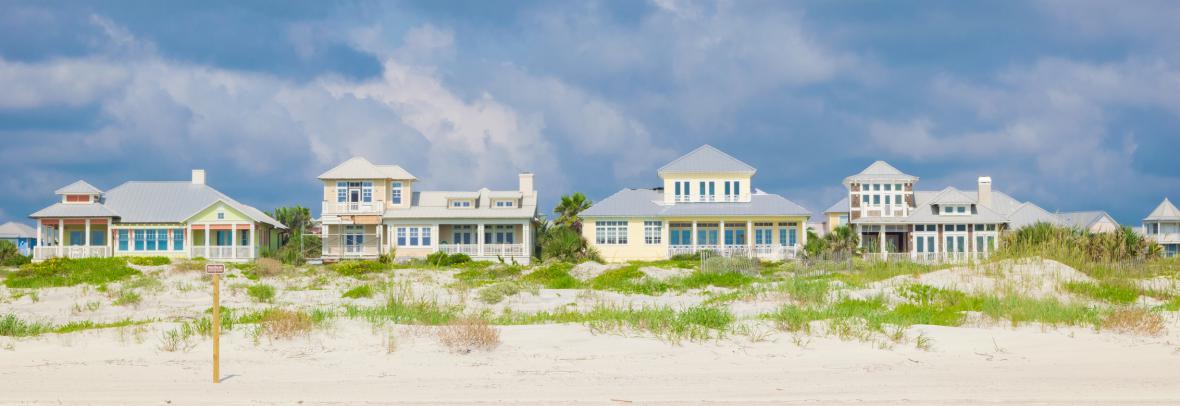
In Walton County, commissioners shut down beaches during the pandemic, including private ones. Homeowners sued claiming they deserve compensation, but a judge said no.
TALLAHASSEE, Fla. – In a dispute that started after a Northwest Florida county temporarily closed beaches early in the COVID-19 pandemic, a federal judge ruled against waterfront property owners who contended that they should receive compensation.
U.S. District Judge Robert Hinkle issued a 19-page decision rejecting arguments that moves by the Walton County Commission to close beaches in spring 2020 resulted in an unconstitutional “taking” of property. The lawsuit focused on people being unable to use areas of the beach that they own, rather than on beaches being closed to the general public.
Hinkle wrote that the plaintiffs were still able to use much of their property and that the county commission was using its “police power in a public-health emergency.”
“The bottom line is this. The Board of County Commissioners faced an escalating pandemic that posed an enormous threat to public health,” Hinkle wrote in the decision issued last week. “There was no way to know at that time how many people would die or become gravely ill and how best to minimize the number. Decisive action seemed appropriate. In closing the beaches, the county exhibited no animus toward these plaintiffs or anyone else. Instead, the commissioners exercised their best judgment, based on the limited knowledge available at the time, on how to preserve life and health.”
Hinkle also pointed to the temporary nature of the closure.
“The plaintiffs had full, unfettered, exclusive access to some of the world’s most beautiful beaches for 337 days during 2020. … That the plaintiffs’ access to part of their property was restricted for 29 days in an effort to safeguard the community was not an unconstitutional taking,” he wrote.
Beach closures were a closely watched issue early in the pandemic, as images of crowds of beachgoers, including spring breakers, flashed across the country while the numbers of COVID-19 cases began to soar.
Walton County, between Panama City and Destin, has seen a building boom in recent years, with multimillion-dollar homes popping up along its beaches.
Hinkle wrote that the Walton County Commission passed an ordinance on March 19, 2020, that prohibited members of the public from accessing beaches and followed up April 2, 2020, with a revised ordinance that applied to all people. Beaches reopened May 1, 2020, and have remained open since then.
Under Florida law, privately owned beach property generally extends to a point known as the mean high-water line. Attorneys for the plaintiffs in the lawsuit also cited property owners’ “littoral” rights, which provide access to the water.
In a court document filed last year arguing for summary judgment, the plaintiffs’ attorneys wrote that “for 29 days the plaintiffs were prohibited, under threat of arrest, from entering their own private property (i.e., their backyards).”
“This (April 2, 2020) ordinance was not designed to reduce transmission of COVID-19 on this private land but rather was designed to make enforcement of the County’s public-beach closure easier,” the document said. “Because Walton County deprived the plaintiffs of every strand in their bundle of property rights while the ordinance was in effect, the plaintiffs are entitled to summary judgment as to all counts of the complaint.”
Source: News Service of Florida
Go to Source
Author: kerrys



